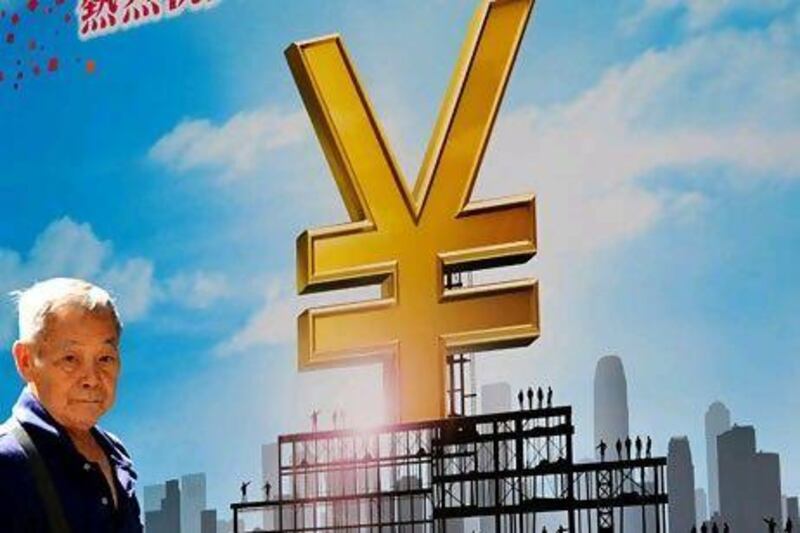As China's economy continues to grow at near double-digit rates while the US struggles with crippling debts, the Chinese yuan is increasingly being spoken of as a potential alternative to the dollar as an international reserve currency.
For this to happen, the Communist Party leadership will have to ease the restrictions that prevent the yuan from being freely convertible for the likes of securities transactions and overseas direct investments. Concerns about the potential for abnormal capital flows are among the primary reasons why Beijing has resisted relaxing controls. Many expect this to happen eventually, although a series of conditions will have to be fulfilled.
Exchange-rate liberalisation
China has come under criticism over what is seen as the undervaluing of the yuan, with the US in particular being vocal in its view that the Chinese currency should be allowed to appreciate. While the yuan has been allowed to gain a limited amount of value and to float more freely, the exchange rate remains under the control of the country's central bank.
Allowing the value of the yuan to be determined by the market is seen by some analysts as an essential step to its becoming a reserve currency and to the resolving of global trade imbalances.
Growth in the domestic market
The effects of an appreciation of the yuan would be alleviated by stronger domestic demand for products made by China's manufacturers. With 1.3 billion people, China has a vast domestic market that could sustain producers despite an erosion of their international competitiveness that would weaken overseas demand.
"The [ratio] of consumption to GDP has to reach a level of 50 to 60 per cent, then when you make the [yuan] fully convertible, you will not lose your business," says Bala Ramasamy, a professor of economics at the China Europe International Business School in Shanghai.
Interest-rate liberalisation
The removal of restrictions that regulate interest and deposit rates is key, according to Frank Song, a professor in the school of economics and finance in the University of Hong Kong.
"For deposit rates there's a ceiling and for lending rates there's a floor. They need to gradually deregulate the system, allow the interest rates to be fully determined by the market," he says.
"Only under that condition can you have a more efficiently run financial system in China. You lay a good foundation for opening up the exchange-rate mechanism."
Removal of capital controls
Dismantling the restrictions on the cross-border movement of capital is regarded as perhaps the most important step before the yuan can be considered fully convertible.
"If you make the [yuan] a floating currency, you have to remove the capital controls," says Dr Ramasamy.
"An average Chinese should be able to take [the yuan] out of the country and invest in [for example] Singapore, and anyone should be able to come into China and invest in the stock market. That to me is the main obstacle for a fully convertible currency."
A suitable external environment
Currently, if China opened up its capital account, it risks subjecting itself to "an excessive liquidity issue", warns Prof Song.
"The external environment is important. Right now China worries about this excessive liquidity outside China.
"It's better to wait until the world economy is stabilised, the monetary policy goes into a normal state. Right now the interest rates in the US, Japan and Europe are very low, so it's not very conducive to China."
Financial-sector reform
Increasing domestic investment opportunities is necessary before currency controls are lifted, says Dr Ramasamy.
The boom in the property sector is partly fuelled by the lack of alternative opportunities for Chinese investors.
"You should increase opportunities for the average Chinese to invest in China - you can talk about the bond market or the private-equity market," Dr Ramasamy says.
"So when there are enough opportunities within the country, even when you open up the doors, you won't have a major exodus of funds out of the country."
When will it happen?
A senior university economist at Beijing's Renmin University recently predicted the yuan could become fully convertible by 2015. Shen Jianguang, the greater China chief economist at Mizuho Securities Asia, wrote last month that 2020 was a more likely date.






